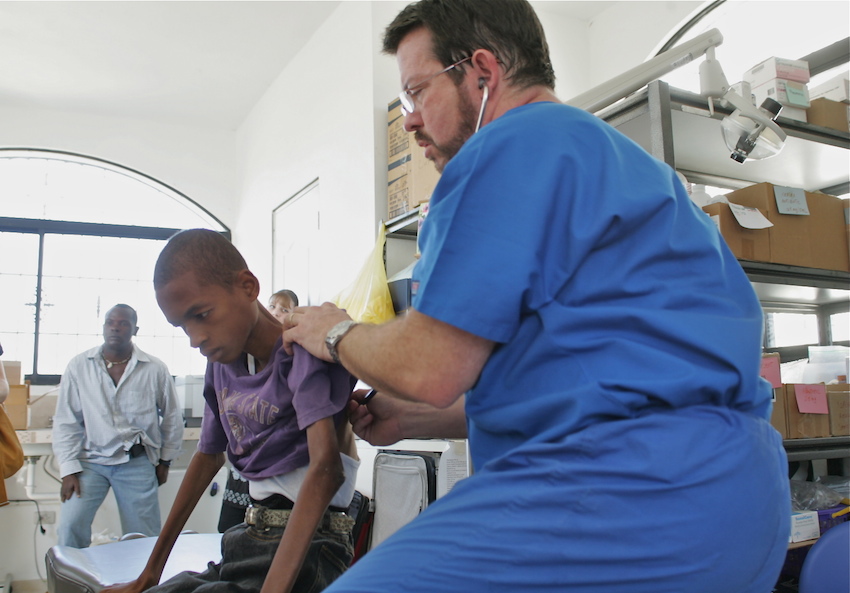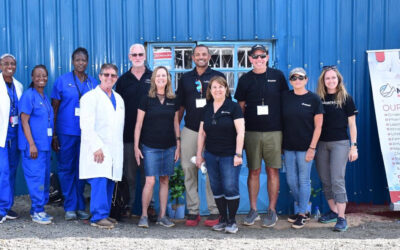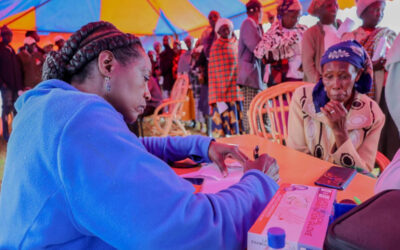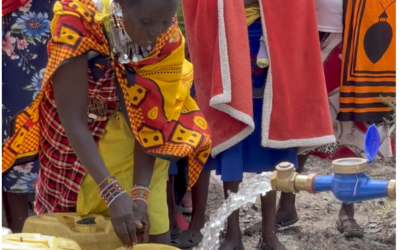In his book, “The Forest Unseen: A Year’s Watch in Nature”, biologist David George Haskell writes about the year he spent visiting a one-square-meter patch of old-growth Tennessee forest, and chronicling how it evolved.
In a way, the Hearts Afire and Caring4Haiti teams visiting Ouanaminthe, Haiti, this week are encountering a place that – proportionate to the forest — is like one square meter of the world.
The primary difference is that while Haskell vowed not to affect what happens in his chosen “mandala”, the mission teams have every intention of doing so. And so it was that Hearts Afire medical team members – working with several embedded Caring4Haiti volunteers, treated 31 patients Monday afternoon, 108 Tuesday and 182 Wednesday.
After years of valuable field experience, the Hearts Afire medical team has its procedures refined. Steve Holt of Christian Family Church in San Antonio makes sure that patients register and proceed orderly into the clinic, where they go through triage, get seen by the doctor or physician assistant, get prayed over and receive their free medicine.
One of the key cogs on Tuesday and Wednesday was registered nurse Dina Sine of Christian Family Church San Antonio, who arrived a day later than the others but stepped right in the excitement and has worked in both triage and the pharmacy. But it’s been more than a medical boot camp for both the Hearts Afire and Caring4Haiti teams, who also have visited with orphaned children as well as elderly people in an old folks’ home, usually traveling on the backs of motorcycle taxis. The teams learned that the impoverished adults here are just as eager to be fed a meal as their children are to receive candy.
After dinner each night at the hotel in the Dominican Republic, where they are staying this week, Christian Family Church Tampa Pastor Rob Mallan asks team members to share their experiences. Diane McCoy of Sarasota noted that the first time she went over the bridge that separates the two countries she saw men pushing carts, carrying – among other items – food.
“I just thought, this is like the 1800s, when people were going across the (United States) in covered wagons,” McCoy said. “I just looked at those things and I thought, this is how they survive.”
McCoy says back home she catches herself getting upset over little things, like Wifi not working. Seeing how people live here during her first trip to Haiti “really just opened my eyes and opened my heart. We’re so fortunate, so blessed (in the United States).”
The team will see more patients – as many as can be treated by 3 p.m. – Thursday.




